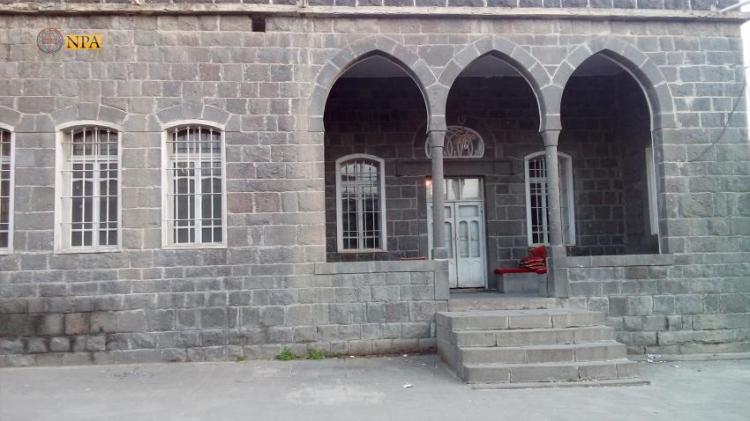Depriving women of Inheritance in the Druze community, a habit supported by laws and justified by the inherited
As-Suwayda – North-Press Agency
Women in Syria’s southern governorate of As-Suwayda suffer trespass regarding inheritance, due to customs and traditions that deprive them of it.
The inheritance in the Druze community, an Arabic-speaking esoteric ethnoreligious group originating in Western Asia who self-identify as Al-Muwaḥḥidun or “People of Monotheism”, mainly spread in As-Suwayda and the suburbs of Damascus, excludes what is known as the “chamber of locked-ups” which is left to women if they came back to their parents as widow or divorced, or even if she remained unmarried.
Although the laws support these customs, yet they violate the Al-Muwahhidun law that affirms gender equality, for social and economic reasons.
Chamber of Locked-ups
Maha is a 49-year-old divorced woman with two children, who during an interview with North-Press, was reluctant to mention her family’s name for social reasons, explained that she was divorced after more than 20 year-marriage and came back to her parents’ house.
She added that when she came back, her brothers have already shared her father’s heritage leaving nothing in the house but a room that was used as a warehouse, where it’s used now as the “chamber of locked-ups”.
Maha cleaned up that chamber and has been living there for 5 years, pointing out that she worked in sewing to secure her living as she expressed “The injustice due to my deprivation from the inheritance on the pretext of fear that my proportion of the inheritance may go to my husband’s, who belongs to another family”.
For her part, Um Hussein, a 70-year-old woman, and mother of eight boys and three girls, described the chamber of locked-ups while she talked to North-Press as a “waiting room for death”, she pointed out that the community of “Druze Al-Muwahhidun does not do justice to women on the matter of inheritance”.
Moreover, she pointed out that she did not inherit anything from her father, noting that even her husband did not leave her and her daughters anything, but only the “chamber of locked-ups”, explaining that some families started to give females a share of the inheritance, although the prevailing habit is that “women only inherit the chamber of locked-ups”.
Selling women’s Inheritance
Abu Muhannad Sheyya, a 40-year-old man, told North-Press that he defended the idea of not inheriting women by saying: “It is not permitted for the sustenance to go to the son-in-law and his family, especially since there is no guarantee that the woman will keep it, she may sell it to a stranger, then the husband may use the money and she may return to us then, without having benefited from her inheritance.”
Sheyya mentioned that many stories regarding this issue “After a short period of marriage, you can find many women sold their property of gold to spend it on the husband’s house, as the man passes away, or in a case of divorce, his family will take his house and she will return to her family’s house only with her clothes bag”.
The Laws and Sharia
The Personal Status Law had taken into account the specificity of the community of Druze Al-Muwahhidun through article 307 of Personal Status Law (59) of 1953 and its amendments, which states that “the will is executed for the heritor and others by one-third and more than one-third”, this means that a member of the Druze community can deprive or inherit whoever he wants.
While legal experts confirmed that this is “Different form of what is taken from the Islamic Sharia, as the inheritor cannot recommend more than one-third of his property, and is not entitled to deprive anyone of his inheritance, as the male has the proportion of two females, and the will is obligated, while in case there is no will, the law of Sharia is applied”.
Whereas one of the clerks of the Druze community said that “The issue of women’s non-inheritance today, is derived from customs and traditions rather than from religion, it relates to old traditions”.
He explained that “Families wanted to preserve their properties, especially agricultural lands, from parceling, which is relatively a small property because of the mountainous nature of As-Suwayda, which leads the family not to concede any part of it to another family, and that may also be a reason to marriage of girls to their cousins”.
Furthermore, the clerk added that the Sharia in the Druze community provides “equality and justice between male and female in the issue of inheritance, giving the inheritor freedom to inherit but with justice, which is considered a polite refusal tool for the heirs to preserve them”.
He also considered that inheritance is due to the fear of “treachery by the male and the return the woman to her family’s house without giving her anything.”
He pointed out that the Sharia of Druze Al-Muwahhidun states that “Woman takes half of the property of her husband’s if he divorced her without any legitimate justification and vice versa.”
He deplored “What prevails nowadays concerning laws and custom is parceled from the Sharia”, pointing out that the reality has been changed today and some families started inheriting both men and women alike, stressing on the need to conform laws with the development of the society and the change of awareness level.
Today, the laws of the Druze community in the southern parts of Syria continue to impose norms and traditions despite the widening gap between the latter, the cultural level and the degree of collective awareness, while women still demanding their rights as stated by Sharia, and to preserve their dignity at least.

